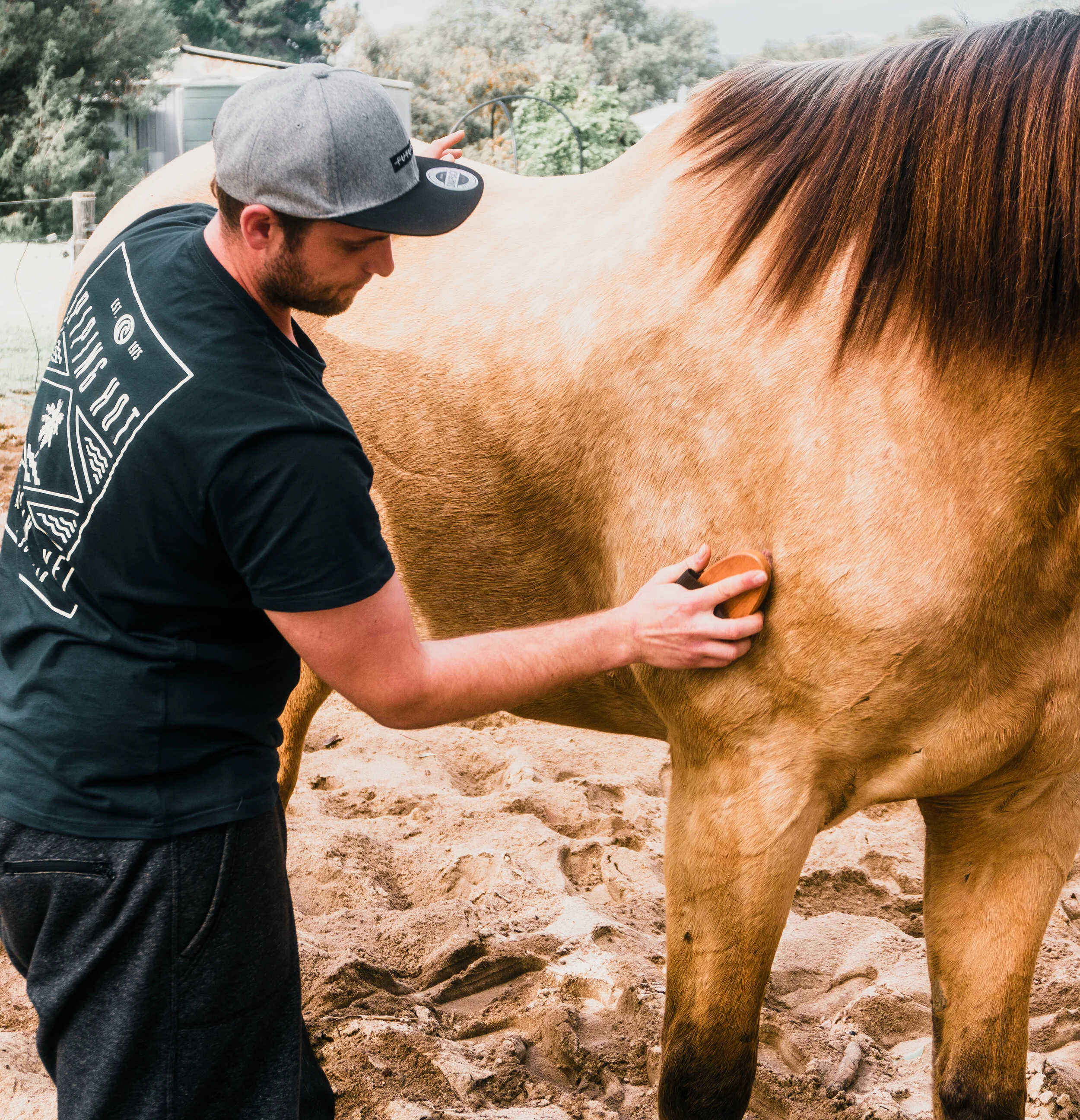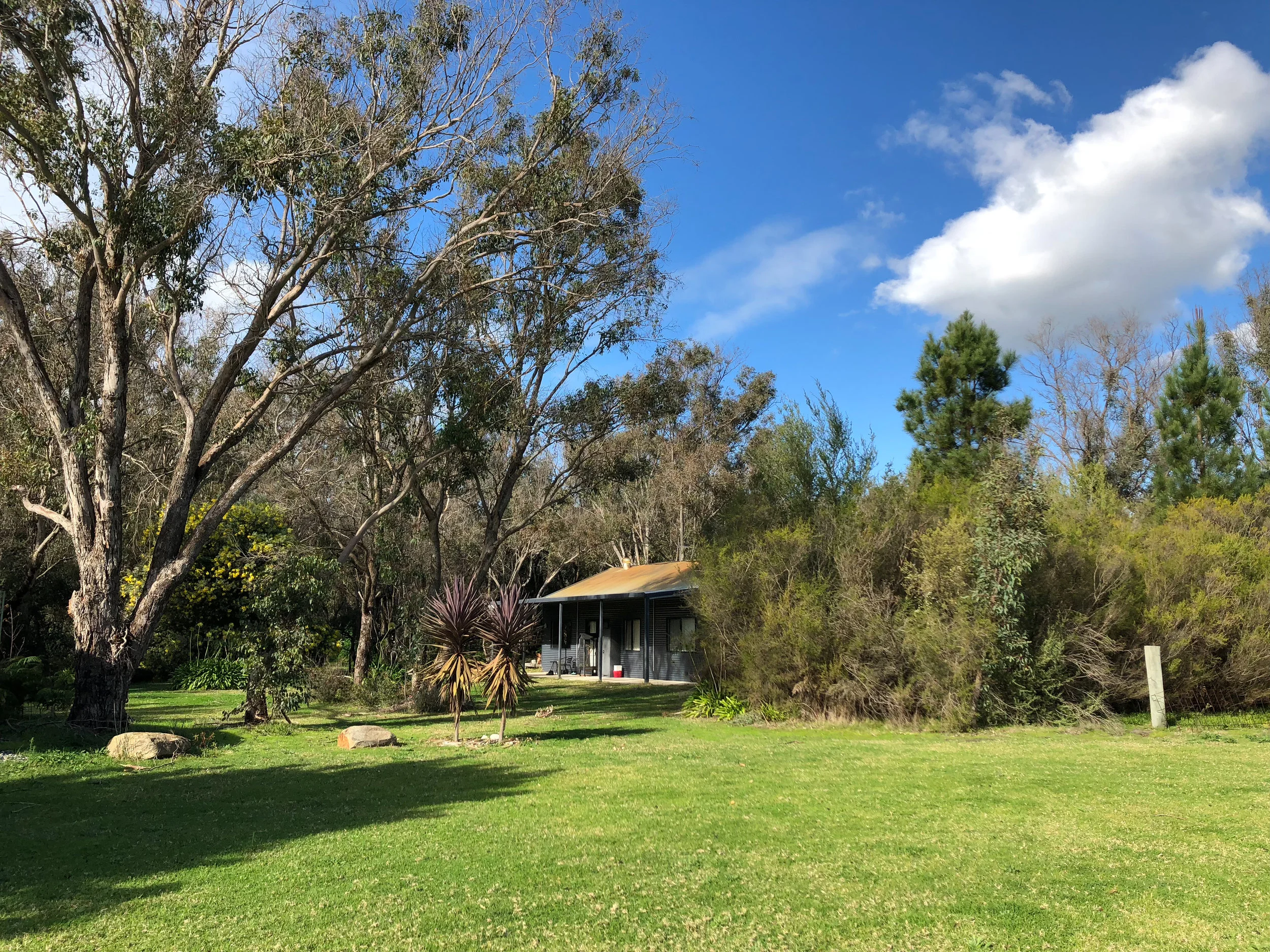
Therapy at Tenacious House
Types of Therapy
Therapy offered at Tenacious House is provided by registered counselors who hold membership with either the Australian Counselling Association or the Psychotherapy Association of Australia.
This registration requires a high level of professional practice and ensures participants are receiving an excellent level of care.
Equine Therapy
Equine Assisted Learning offers an alternative service, where the practitioner is assisted by specially trained equine, (horse), facilitators and the therapy room is out-doors. Animal Therapy has been used for many years, and Equine Assisted Counselling is particularly powerful.
Participants learn how to be predictable, trustworthy, and communicative from the bond established with the horse. Through interactions between patients and horses, patients learn new ways of dealing with trauma, addictions, and relationships.
Why Horses?
They provide the opportunity to learn about building positive relationships.
They mirror or model our behaviour, which teaches us about ourselves.
They are a completely unbiased, non-judgmental companions.
Just the thought of a horse will evoke an emotional response in the human psyche.
They can move, touch and hold, in a way a human practitioner cannot.
Our 10 weeks course is offered twice yearly and is a great addition to more traditional forms of counselling. These sessions offer a safe space for clients to explore feelings and behaviours in a new way.
Working with horses helps participants build relationships, be grounded in the current moment whilst promoting wellness and mental wellbeing. Equine Therapy is an evidence informed therapeutic approach.
Dialectical Behavioural Therapy
Dialectical Behaviour Therapy (DBT) is a modified type of cognitive behavioural therapy (CBT). Its main objectives are to teach participants how to live in the moment, develop healthy ways to cope with stress, regulate their emotions, and improve their relationships with others.
DBT has evolved to become an evidence-informed psychotherapy approach that is used to treat many conditions such as borderline personality disorder, PTSD and addiction.
Here at Tenacious we utilities DBT in our individual counselling and we also offer an 8 week skills group which is focused on teaching the necessary skills and tools for participants to regulate emotions, manage personal relationships and handle distressing situations.
Narrative Therapy
Narrative Therapy (NT) is a non-judgmental approach to counselling which seeks to be respectful of individuals and centers them as the experts of their own lives.
It considers problems as separate from the individual and assumes that people have the necessary skills, competencies and values that will assist them to reduce the impact of issues in their lives.
The goal of the NT is to identify maladaptive stories that participants tell themselves and begin to create alternative stories that promote wellbeing.
NT seeks to assist clients in re-authoring from a place of isolation to connection. Connection cannot be underestimated in relation to recovery.
Cognitive Behavioural Therapy
Cognitive Behavioural Therapy (CBT) is a type of psychotherapy that helps participants change unhelpful or unhealthy habits of thinking, feeling and behaving.
It is a focused approach based on the premise that cognitions influence feelings and behaviours, and those subsequent feelings and behaviours can influence the way we think.
This approach is used with participants in both a group and individual setting.
By exploring patterns of thinking that lead to self-destructive actions and the beliefs that direct these thoughts, people with addictions and mental illnesses can modify their patterns of thinking to improve coping skills.
Trauma Focused Therapies
At Tenacious House we understand that our residents will often have underlying trauma.
Our team will work residents to build trust, create safety and provide opportunities to work through these issues.
We understand that trauma can be very difficult and painful to process and our clinical team is trained in a variety of trauma focussed therapies that will ensure this work is done safely.
Eye Movement Desensitisation Reprocessing
Eye Movement Desensitisation Reprocessing (EMDR) has an integrated treatment approach which also incorporates aspects from other modalities and directs clients to think or imagine the traumatic memory at the same time as saccadic eye movements.
It is an effective therapy for treating post-traumatic stress disorder (PTSD) and other past trauma.
Talk therapy alone may not be enough to resolve the chronic symptoms left behind by the survival reaction to trauma. Nearly all patients who receive EMDR therapy report greater general wellness and significant decreases in trauma-related symptoms.
EMDR is a powerful, effective, and safe method for alleviating the long-term psychological impact of traumatic experiences.
Wellness
Those who suffer from addiction, mental health issues, or trauma can often make unhealthy lifestyle choices that harm themselves and bring imbalance to their lives.
Having a holistic approach to recovery is vital to support physical, mental, emotional and spiritual wellbeing. Here at Tenacious, we offer the following within our program:
Fitness classes take place each week to improve physical health and strength
Food and nutrition courses are run that teach healthy eating habits
Our trained mental health professionals deliver weekly ‘Wellness Groups’ with topics ranging from mental health to physical health.
Mindfulness groups are incorporated to teach participants awareness in the present moment, improve sleep and to support participants in responding to stressful situations.
Participants are given the opportunity to explore their personal spirituality.
Each morning participants present a ‘thought for the day’, which can be a personal reflection, medication or reading.
Group Therapy and Lived Experience Peer Support
No man is an island, but addiction, trauma, and mental health issues can be very isolating. One-on-one therapy is an important part of what we do at Tenacious House, but that type of talk therapy can only take someone so far. It is in groups that participants find community, connection, camaraderie, and peer support that can lead to important insights and provide the framework for lasting recovery.
Groups allow patients to identify with their peers and gain insight into their negative choices and behaviours from others who have been there.
Holyoake
This 12 week group is run by Holyake and includes weekly presentations by counselors on a variety of topics, followed by therapeutic discussions. This is an educative and therapeutic approach to development recovery skills, typical of what you would expect to see in a recovery program. For more details please visit www.holyoake.org.au/who-we-reach/men
Connections: Building Shame Resilience
Connections is a 12 session Psycho-educational shame resilience curriculum developed by Dr Brene Brown. Topics include: defining shame, practicing empathy, exploring triggers and vulnerabilities; practicing critical awareness; reaching out to others and creating, embracing and inspiring change. Connections engages participants on a cognitive, behavioural and interpersonal level to build shame resilience.
12 Step Fellowship
We recognize the value of integrating the 12-Step approach into the treatment process. The 12 Steps include a variety of broadly applicable principles that can help patients modify negative behaviours, prevent relapse, and maintain lasting recovery.
Our approach to the 12 Steps focuses on the belief, that no one is alone. Participants work through steps 1 to 3 from the Narcotics Anonymous Green and Gold book one on one with their Support Worker as part of our residential program.
Participants attend 2 – 3 fellowship meetings a week and are encouraged to share their thoughts at these meetings, allowing them to feel heard. As participants release their emotions in this safe environment fostered by the group they can process their thoughts and experiences.
We encourage participants to find a home group, obtain a sponsor, and complete personal work as a way to help prevent relapse, teach better self-control, and reinforce lasting healing.
Are You Ready To Help Save Lives?
Tenacious House stands on the collective goodwill, tenacity and connections of community members.
Through partnering with Tenacious House, your financial support and compassion can help save lives and reunite families.
A dollar in the hands of Tenacious House has a multiplier effect throughout the community.









